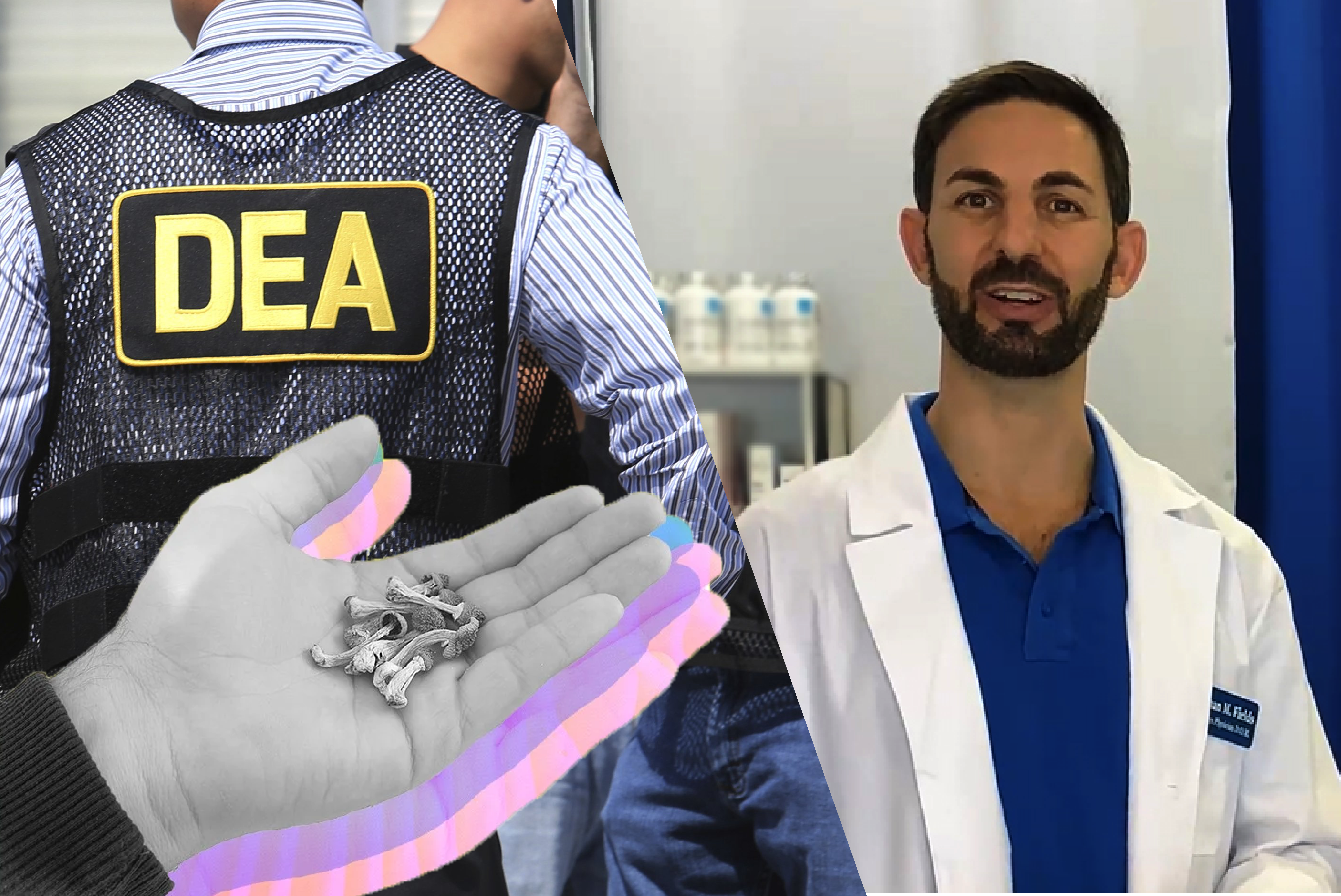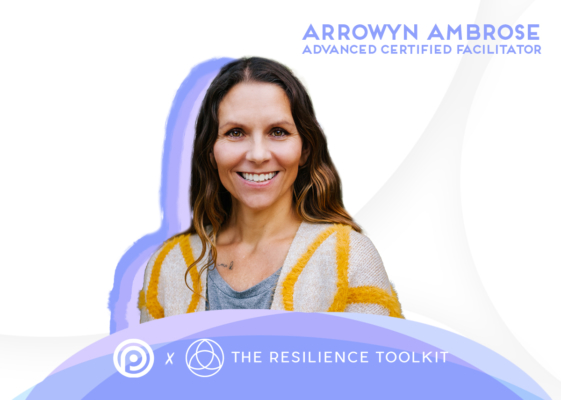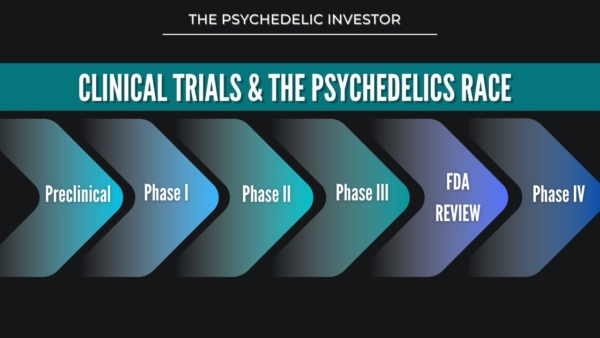Who’s winning the psychedelics race and how do clinical trials work? This topic has been requested a lot lately so we decided to give you a rundown on the clinical trials system and the psychedelic-inspired companies who are furthest advanced at the moment. Of course, for now, MAPS is leading the race. However, other public companies such as Compass Pathways (CMPS) and MindMed (MMED / MNMD) are not far behind, for now.
Hopefully, this introductory video will help some new retail investors who are considering investing in biotech companies who do not te have an approved drug, to understand the importance that clinical trials need to play in their investing decisions.
Timestamps:
0:00 – Intro
1:34 – What is the clinical trial system?
2:15 – Preclinical
3:00 – Phase 0
3:32 – Phase I
5:45 – Phase II
8:26 – Phase III
10:28 – Phase IV
11:08 – Who’s winning the race?
11:16 – MAPS ( non-for-profit entity): Has already completed a Phase III study on MDMA to treat PTSD
12:02 – Compass Pathways (CMPS) has a Phase IIb trial to treat TRD with COMP360
12:28 – MindMed (MMED / MNMD) has completed a Phase IIa LSD study to treat Anxiety and will begin phase IIb this year. MindMed also has other Phase II studies involving LSD & Ibogaine (18-MC)
13:23 – Mydecine (MYCO) and CYBIN (CYBN) following suit
Remember to Like, Subscribe, and SMASH that notifications bell to keep up to date on all the latest Psychedelic Stocks news!
Follow us on social media! 🙌
Instagram: @psychedelicinvestor
Email: thepsychedelicinvestor@gmail.com
Facebook: @thepsychedelicinvestor
editing by: @themyaholy
Music: www.bensound.com
https://benzinga.grsm.io/jameshallifax1834
https://benzinga.grsm.io/thepsychedelicinvestor
DISCLAIMER: I am not a financial adviser nor a CPA. These videos are for educational and entertainment purposes only. Investing of any kind involves risk. While it is possible to minimize risk, your investments are solely your responsibility. It is imperative that you conduct your own research. I am merely sharing my opinion with no guarantee of gains or losses on investments.
All of the information in this video is public information that James (The Psychedelic Investor) believes to be reliable but it is not guaranteed to be 100% accurate and as such should not be used as advice. Any opinions or thoughts from James (The Psychedelic Investor) are subject to change.
#MindMed #Numi #CMPS






